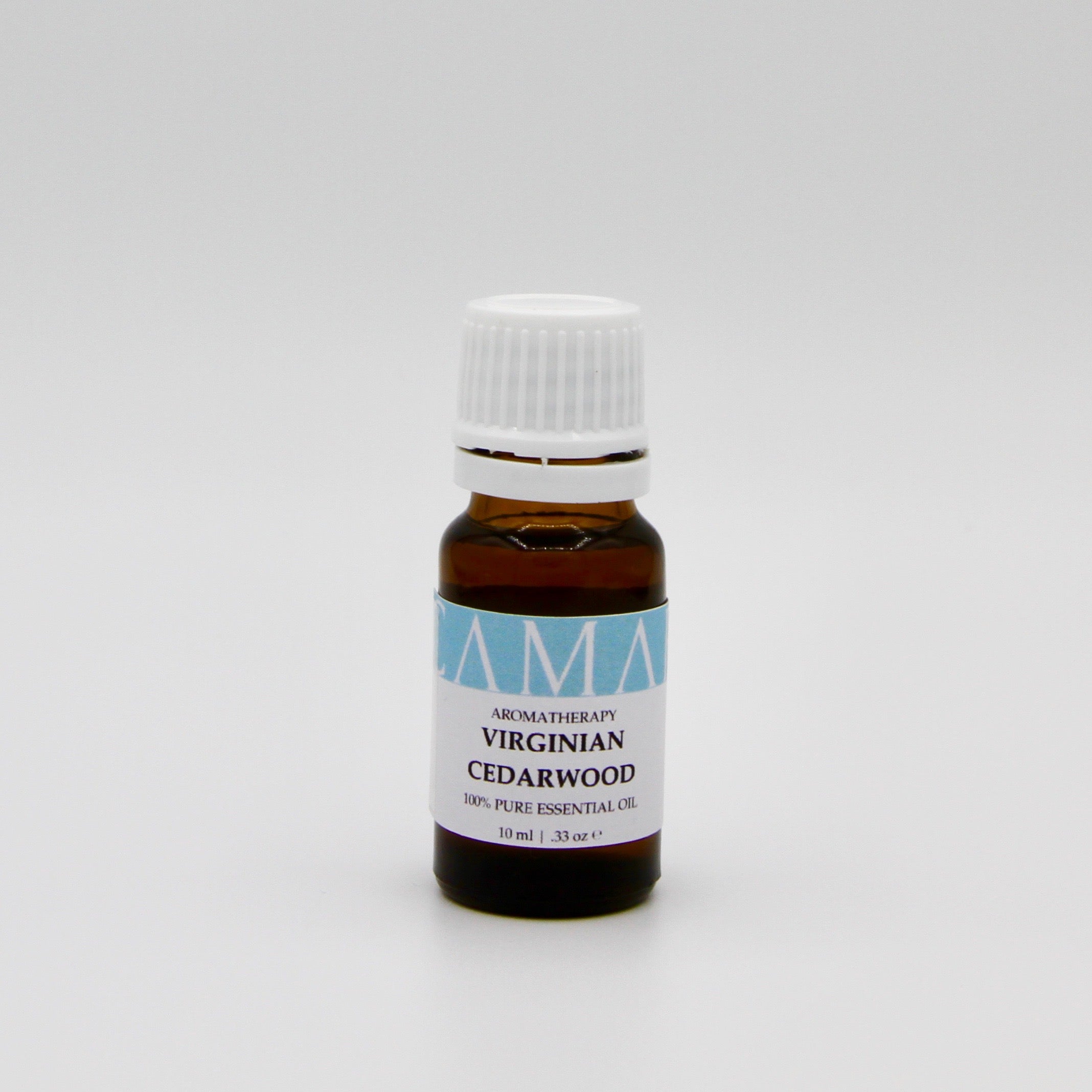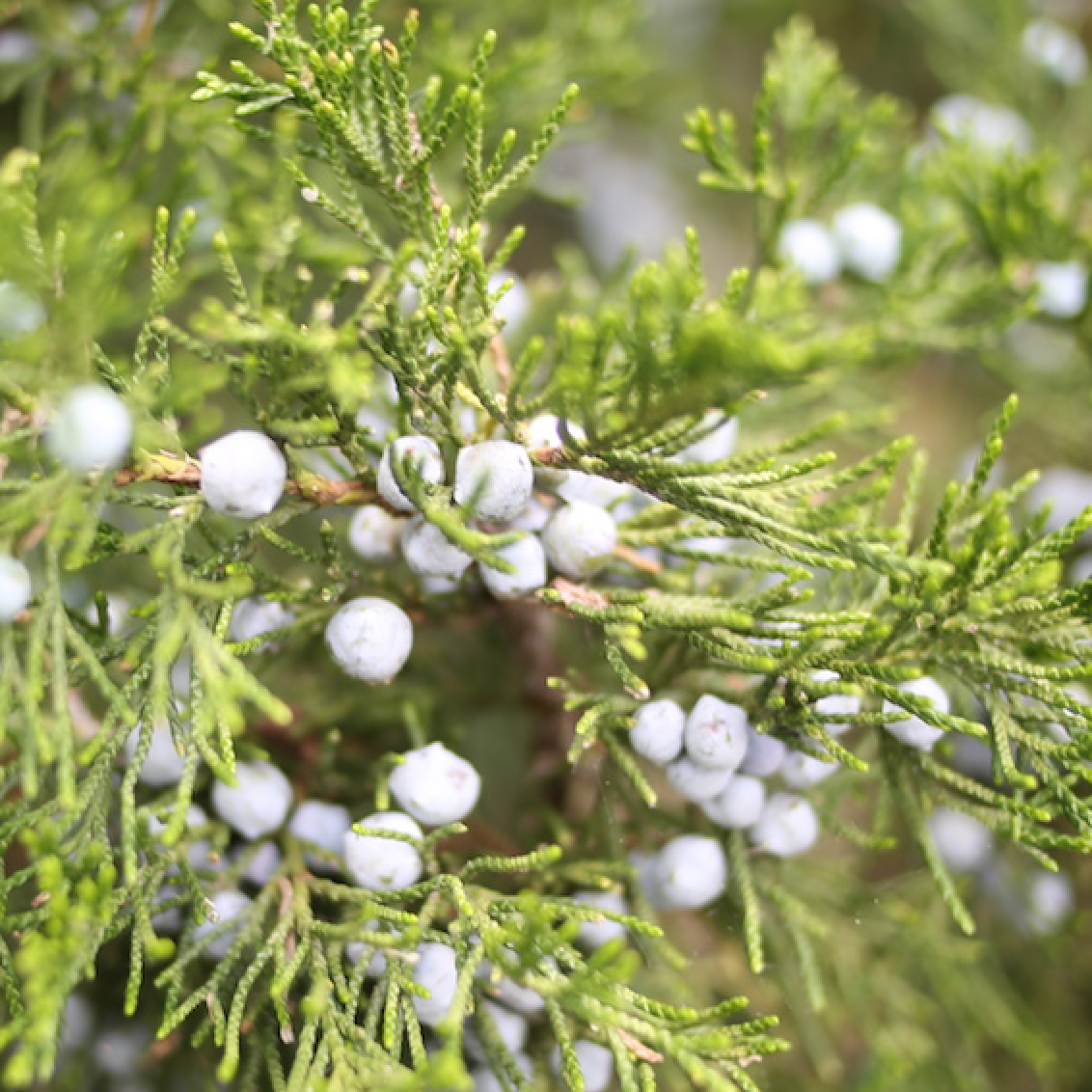

A dense evergreen coniferous tree averaging a height of no more than 27 - 30 metre in height, the bark is a fibrous reddish-brown, which peels off in narrow strips. In many areas the trees are considered an invasive species, even though they are native to the land and area. The trees are capable of reclaiming cleared, eroded, damaged and unused land.
The oil may often be solid or semi-solid at room temperature due to precipitated cedrol. It is considered a somewhat cleaner, and smoother than Atlas or Himalayan oils although less powerful. The Virginia cedarwood is considered by many perfumers to have a smoother and finer (but less powerful) odour than Texas oil.
Steam distilled from the wood of the Southern Red Cedar, it may be particularly useful in skin-care preparations as it has astringent and antiseptic properties. It is beneficial for oily skin types, helping to cleanse the skin, and also has a softening effect on the skin. It helps relieve stress, tension and benefits respiratory conditions. The odour has been described as similar to Cedarwood Texas, but a little softer.
Safety Precaution : Should be avoided during pregnancy.
Blends well with : Bergamot, Cinnamon, Cypress, Frankincense, Jasmine, Juniper, Lavender, Lemon, Neroli, Patchouli, Rose, Rosemary and Sandalwood.
FACT : The Native Americans had numerous uses for this aromatic and dependable wood, if prepared correctly, cable-backed bows made out of sinew and wood were made, juniper wood poles were used to mark agreed tribal hunting territories. Incorporated with local medicines to create sacred and spiritual concoctions during ceremonies and prayers. Cedarwood oil Virginia is additionally used in insecticides, polishes and cleaning products, soaps, and liniments.
Choose options


